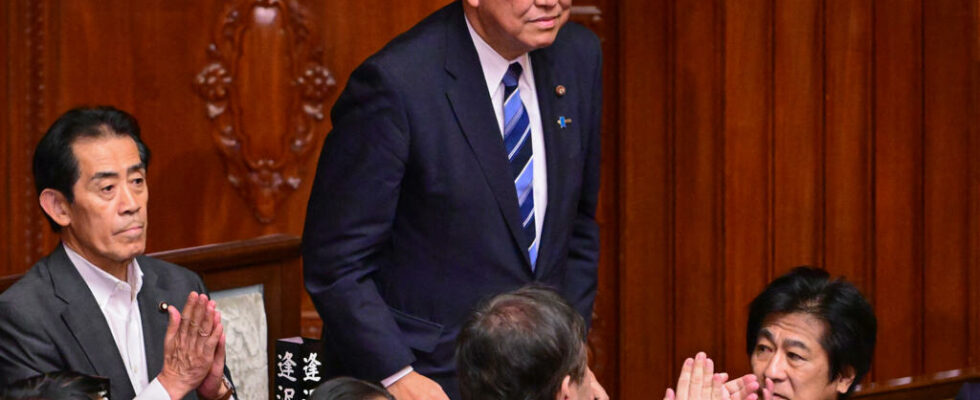Shigeru Ishiba, designated on Friday September 27 by his party, officially becomes, on October 1, the Prime Minister of Japan, where he wants to call early legislative elections at the end of the month before tackling a series of economic challenges , political and international.
2 mins
This Tuesday, October 1, Shigeru Ishiba, 67, officially became the new Prime Minister of Japan following a vote by Parliament. He should immediately announce the composition of his government which will have to face a series of economic, political and international challenges. This vote in Parliament, where the ruling coalition has a comfortable majority, was no more than a formality after the election won on Friday by Mr. Ishiba to take the helm of the Liberal Democratic Party (PLD, conservative right) .
In 2012 and 2017, this father of two children failed to take the lead of the party each time against his great rival, Shinzo Abe. Same scenario of defeat during his previous attempt to gain power in 2020, against Fumio Kishida. The former Minister of Defense and Agriculture is rather appreciated by the Japanese public but has always suffered from a lack of popularity among parliamentarians.
The issue of population aging
Among a series of challenges on the economic and political levels as well as on the international scene, Mr. Ishiba will be confronted in particular with the sluggish consumption of Japanese households and the weakness of wage growth, which constitute a brake on the country’s growth. Shigeru Ishiba supports monetary normalization initiated by the Bank of Japan in 2024, a stance that sent the yen surging on Friday and sending the Tokyo Stock Exchange tumbling on Monday, where investors also fear the prospect of corporate tax hikes .
The worrying issue of Japan’s falling birth rate – which has the oldest population in the world behind Monaco – should also be among his priorities, with Mr. Ishiba particularly wishing to tackle the problems of the number of working hours and strengthen support for parents. He will also have to face voters’ distrust of his party after a series of political and financial scandals which shook it and undermined Mr. Kishida’s popularity rating.
A regional military alliance
Internationally, the new leader will also have to manage regional tensions, while his predecessor had committed to doubling defense spending and strengthening ties with the UNITED STATES And other countries shaken by the rise in power of China but also the behavior of the Russia and the North Korea. Mr. Ishiba, who visited Taiwan in August, says he is in favor of the creation of a military alliance in the region, based on the model of NATO and its principle of collective defense.
Also readJapan: towards early legislative elections set for October 27
